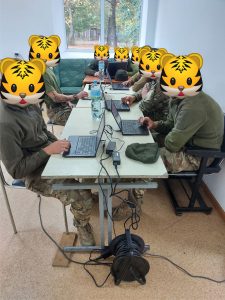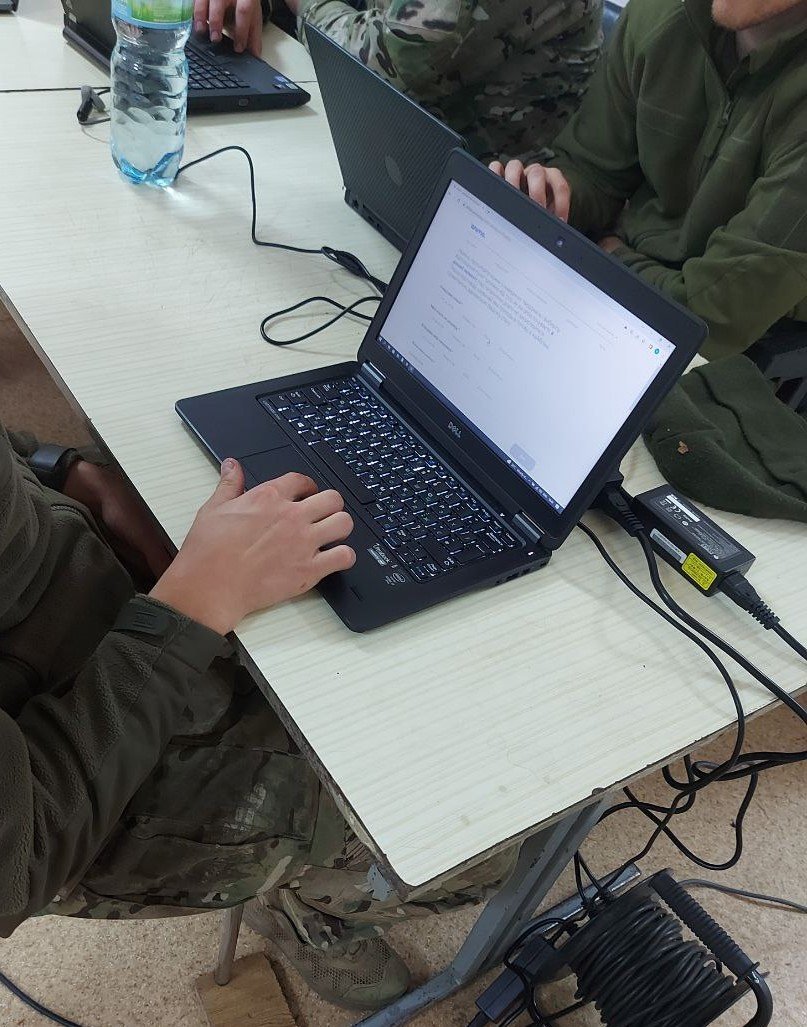» Blog » News » Anima, a neurotechnological startup capable of testing the mental state of a person, was launched in Ukraine. Conversation with Roman Havrysh, a co-founder of the project
Anima, a neurotechnological startup capable of testing the mental state of a person, was launched in Ukraine. Conversation with Roman Havrysh, a co-founder of the project
Ivano-Frankivsk developers have created the Anima project — an online platform for everyone who wants to check their mental health. The technology is based on eye-tracking and the scientific method of determining the attention bias. This distinguishes the service from the rest of the standardized tests, making it possible to more accurately diagnose the mental state of a person. The project is primarily aimed at helping military personnel and their families as well as people who have experienced the death of loved ones or loss of housing due to hostilities to prevent mental disorders. Roman Havrysh, the co-founder of Anima, Head of the Aimbulance marketing agency, told us more about the technological features of the startup.

Eye-tracking technology: from scientific labs to personal webcams
The technology is based on the principle of attention bias. Attention is a basic component of the psyche that even precedes emotions. Therefore, the attention bias largely determines mental reactions and behavioral patterns.
The technological innovation lies in the fact that this tool can monitor the movement of the retina with the help of a web camera. Previously, such professional eye-tracking was available only in a scientific laboratory. In addition, Anima uses machine learning as one of the divisions of artificial intelligence. Based on the first test results, the project’s developers are already registering certain attention biases towards excessive vigilance among the military.

‘Based on the reviews of military psychologists, Anima is useful for them in three cases: specification of the diagnosis and treatment plan; identification of aggravation (exaggeration of mental state) and dissimulation (concealment of symptoms of diseases). This partially solves the problem of standardized questionnaires, the results of which are quite easy to distort’, says Roman Havrysh.
Since its launch, tens of thousands of Ukrainians have already landed at the service and thousands did the test. The cost of one test is UAH 39; quick therapy, which includes 6 tests, costs UAH 140, and long-term therapy, which includes 12 tests, costs UAH 234.
The service is free for veterans and combatants, police officers, rescuers, journalists, psychologists, and therapists who work with internally displaced people. They can gain access to it through a psychologist or institution that uses Anima for such tasks.
The path from the idea to the project launch
The startup was jointly developed by Aimbulance, a business and marketing consulting agency; Beehiveor, a center for neurobiological research and neurotechnology development; Veteran Hub, an organization for psychological support of veterans. The idea to create a psychological support platform surfaced three years ago, and the initial cost of the technology was $100,000.
‘In 2020, I got sick with Covid. It was such an unfortunate time when it seemed like you might die. Then came an understanding that you need to create something that will remain after you. Since we have been interacting with the Beehiveor company for a long time—they are our partners in neuromarketing research—we understood that it is necessary to create something related to the psyche precisely from the standpoint of neurophysiology and neurobiology,’ recalls Roman.
The teams started with market research, work on the brand, business design. The start of a full-scale war gave impulse to focus entirely on working on the project. As some of the operations in the companies were suspended, Anima became their main focus.
In the first days of the war, part of the Aimbulance team relocated to Ivano-Frankivsk and continued working at the Promprylad.Renovation innovation center. Previously, the agency worked on the marketing strategy and brand identity for Promprylad. It was here that they found a front-end developer who is currently fighting in the Armed Forces of Ukraine and finds time to work on the project even during his service.
In total, the project team consists of 15 full-time employees and the same number of freelancers. Other specialists involved in the workflow are psychologists who conduct research at the Lisova Poliana Mental Health and Rehabilitation Center of the Ministry of Health of Ukraine and the Veteran Hub.
Why is it important for Ukrainians to pay attention to their own mental health?
Under the conditions of the post-Covid crisis and full-scale war, every fifth Ukrainian is at risk of developing mental disorders. According to the WHO, for Ukraine, this is about 8.5 million people, of which more than 3 million people will need medical treatment.
‘When you experience life situations that are difficult for your psyche, we recommend using our service to understand how much you have been “touched” in order to prevent and avoid a mental disorder’, explains Roman Havrysh.

The war is especially traumatizing to the psyche of the combatants. Most soldiers are diagnosed with depression and post-traumatic stress disorder. The spectrum of emotions experienced by people with PTSD ranges from fear and apathy to nervous breakdowns and heightened anxiety. In a peaceful life, this can not only negatively affect relationships with loved ones, but also cause potentially dangerous situations. Among the most unfortunate consequences are suicides, the share of which can reach 20% among the total number of losses of veterans and military personnel.
Such distressing statistics have a global nature. In this regard, in the USA, for example, after being in a combat zone, military personnel must undergo medical and social rehabilitation.
In the conditions of war, Anima is an indispensable tool for prevention of mental disorders. The effectiveness of the tool is already recognized by military psychologists who analyze the psychological and emotional state of the unit’s personnel.
In the future, Anima will be able to help people improve their mental resilience
The startup’s developers plan to enter foreign markets, connect psychological support platforms, and promote the idea of introducing biometrics into psychology.
‘In the context of working with the brain, the eye is the simplest, most accessible, and most accurate tool possible. This tool will allow psychologists to measure the effectiveness of therapy, and ordinary users—to prevent mental disorders.
In the future, we strive to develop the technology and cover the main spectrum of all mental disorders or deviations. Thanks to this, people will be able to check themselves for adequate functioning and, if necessary, seek help,’ explains Roman Havrysh.
Currently, developers are working on Anima’s ability to analyze not only depression and anxiety, but also to diagnose PTSD, emotional burnout, eating disorders, and addictive disorders. Furthermore, they also consider the ability of the service to give individualized advice to each person based on artificial intelligence.
The very name “anima” comes from the Latin word “soul”. For the ancient Romans, the concept of soul was associated with life, spirituality, and the ability to act. And this perfectly conveys the idea of the importance of the connection between the mental state and the physical state of a person.
According to Roman Havrysh. the co-founder of the project, person’s idea about their mental state can be very different from their real psychological and emotional state. This is the task of Anima—to help a person harmonize their physical and psychological health.